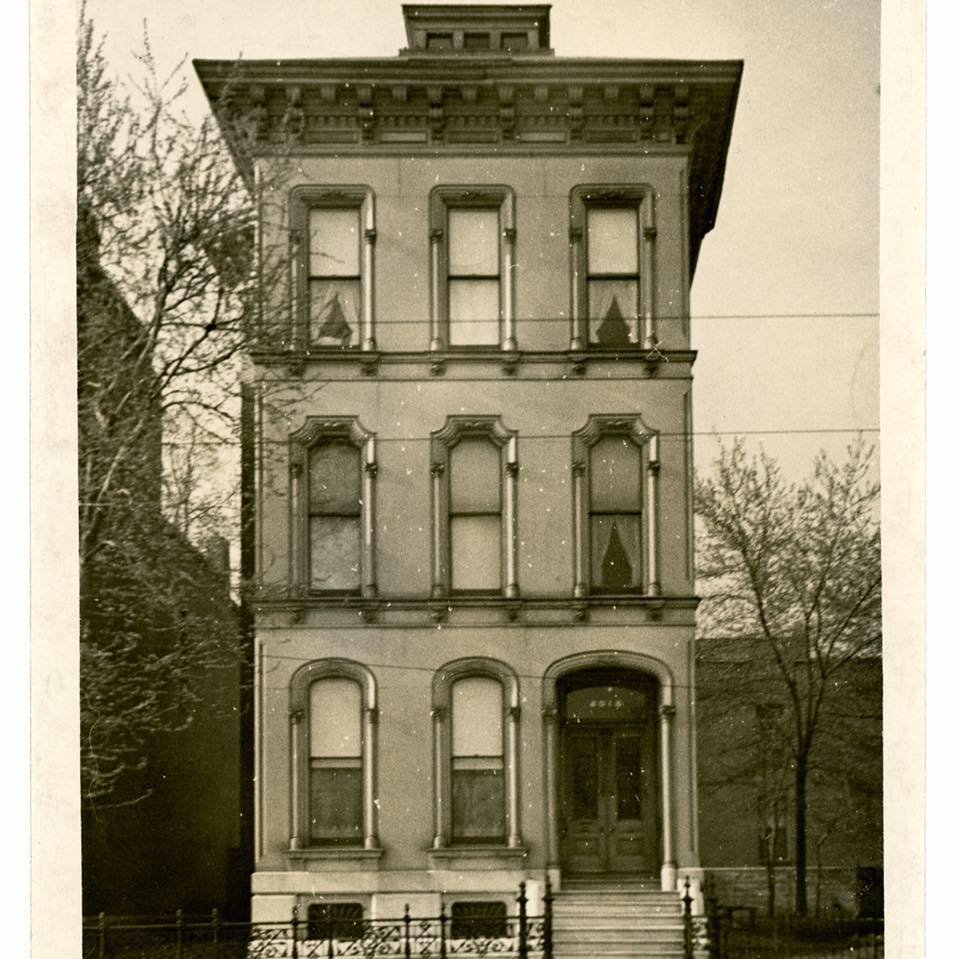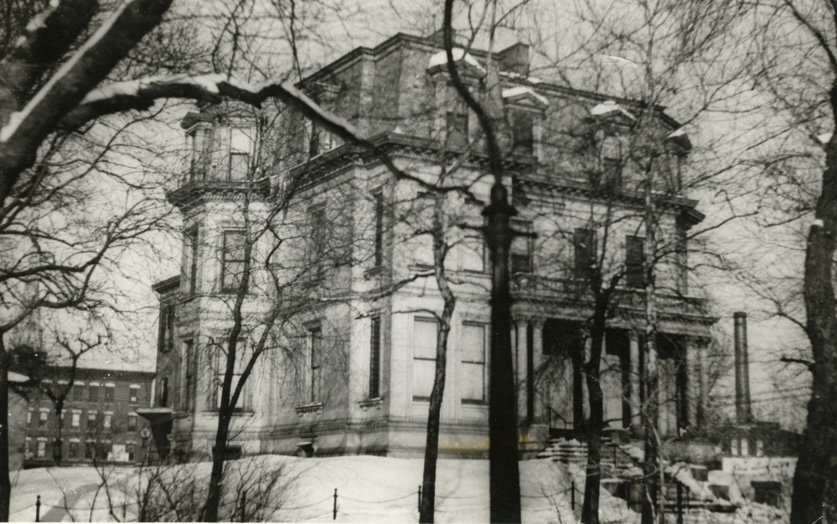Charles H. Peck house
Built: 1871
Demolished: 1950
Style: Second Empire
Architect: George I. Barnett
Neighborhood: Grand Center
City Block: 2289
On 1875 Compton and Dry Map: yes
On 1883 Hopkins Atlas: yes
Historical significance: This house was built for Charles H. Peck, an architect and builder associated with George I. Barnett. Peck came to St. Louis in 1838, as a carpenter, and later partnered with Barnett as an architect in the 1850s. Peck was also involved in several other successful businesses, and was president of the City Mutual Fire Insurance Company. He also invested in Vulcan Iron Works and the Pacific Railroad. He was also a trustee for Vandeventer Place, which he had helped to finance, and was one of the initial purchasers of a lot on the street, along with Napoleon Mulliken. His house was built by George I. Barnett, his former partner, for $65,000. Peck was so successful with all of his business ventures that he paid $300,000 in taxes in 1885. Peck continued to live in his Vandeventer Place mansion until his death in 1899. After his death, the initial charter for Vandeventer Place was no longer upheld, as he was the last of the founding members of the street to die. His daughters lived in the mansion after his death, and Rebecca Peck Dusenberry lived here until 1947, when she died at the age of 95. Later in her life, she had the only elevator on Vandeventer Place installed in the house due to her inability to climb the stairs in her old age. When the house was demolished, it was the only one on Vandeventer Place that remained in the same family throughout its lifespan.
Architectural significance: This house was built in 1871 in the Second Empire style by George I. Barnett, who was hired by his old partner, Charles H. Peck. The house was one of the larger examples of Second Empire architecture in the city, with a total of 30 rooms, and was designed in a similar layout to many of Barnett’s other homes constructed in the same style around this time, such as the Huse house and the Bain house in Lafayette Square.
Charles H. Peck
The Peck house on the 1875 Compton and Dry Map, labeled number 31
The Peck house during demolition in 1950








